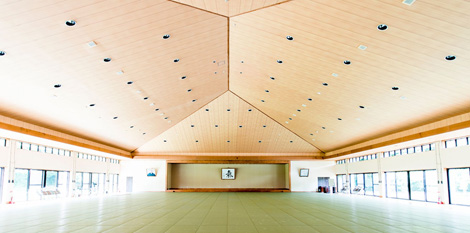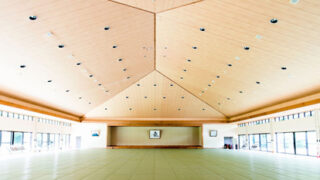Recently, I had an opportunity to look back upon my Uchideshi days as part of a book project. What was that period of time for me?
Uchideshi training normally takes five to ten years, but I had three years to complete it.
There were three reasons. First, Koichi Tohei Sensei, my teacher, was already in his late 70s; second, I was aiming to be the heir so it had to be determined quickly if I was really ready for the job; and third, I had been learning Aikido since I was a child so I had an early starting point.
The first year, I had to spend far more number of hours cleaning than I did Aikido training. Since I only had 3 years to train, I was quite anxious and frustrated. I wondered if I should be cleaning at all!
Koichi Tohei Sensei could clearly see and understand the Ki I was extending. One day, he called me in and said,
“I see you’re cleaning, but quite reluctantly. Have you ever wondered even once why I make you clean so much?”
Of course, I never have thought about it. I was full of frustration because I had never thought about it.
Oh, I see. There was a purpose to this. If so, what am I doing this for? I realized, if I did it reluctantly, I wouldn’t understand anything, so I decided to take the same proactive approach to cleaning as I did to Aikido training.
The first thing I realized was that my work had “waves”. Even though I thought I was cleaning the same way every day, the results varied.
I realized that when I am in a good mood, I clean every nook and cranny, but when I am not in a good mood, I tended to be sloppy. Even though I thought I was in the same state of mind, my state was changing [each time] without my realizing it.
I reminded myself that this was not the way to go, and I began to always try to clean the same way, whether I was in the mood for it or not.
As I did so, to my surprise, my techniques became more reproducible. Until then, my techniques sometimes worked and sometimes didn’t, and I didn’t realize that this was due to the changes in my state of mind.
By noticing that my state of mind does change, my technique changed also.
By the second half of my Uchideshi training, I was able to do many different things. One day, I was in a hurry because I had an appointment, so I cut corners a bit on the cleaning, thinking, “Well, this is about as good as it gets”.
No one seemed to notice this. The next day, I cut back even further, saying, “Well, this is good enough.” After a week of repeating it, my cleaning had become quite sloppy.
Then, I was summoned by Koichi Tohei Sensei!
“You think I am not aware of what you have been doing?”
I knew right away it was about cleaning, but what awaited me was unexpected words from him.
“You started cutting corners about a week ago. You may have thought you were cutting corners only a little bit, but that is the beginning of compromise. Once you make one compromise, even a small one becomes the next compromise. By the time you realize it, it is too late. The only person who can prevent it is YOU.”
My initial intention was to always cleaning in the same way, but as time went on, before I knew it, I began compromising and saying, “Well, this is about right.”
I was amazed that he had been watching over me all along, and he had noticed this a week earlier. I felt my teacher’s Honki [True Ki – serious, sincere, and earnest intention] and love, and I firmly vowed to stop making small compromises. This became my basic attitude in life.
It’s only cleaning, but it IS cleaning. These are both attitudes about cleaning.
If we have a high sensitivity to learning, then we can learn to notice (the differences in our state of mind) a lot even from cleaning. When you feel like (and notice), “What’s the point of cleaning?” that’s a danger signal.
Often times, (by noticing the difference), one person gets a lot and another gets nothing even though we are the doing exactly the same thing in the same time and space.
If we have a high level of sensitivity to learning, (noticing the difference in our own state of mind), then everything we see and touch can be a learning experience. If so, there is much to learn even from young children.
What was Uchideshi shugyo [training 24/7] for me?
It was an important period for me to master the basics of learning for the rest of my life, and with a limited time frame of three years, I was doing something to increase my sensitivity to learning.
25 years have passed since then and I am continuing to improve my sensitivity to learning.
Translated by Mayumi Case
Edited by David Shaner
Eastern Ki Federation
https://easternkifederation.org/
Original article in Japanese: 学ぶ感度 (Manabu Kando)
February 1, 2024
https://shinichitohei.com/japanese/04-%e3%83%a1%e3%83%bc%e3%83%ab%e3%83%9e%e3%82%ac%e3%82%b8%e3%83%b3/29829/


